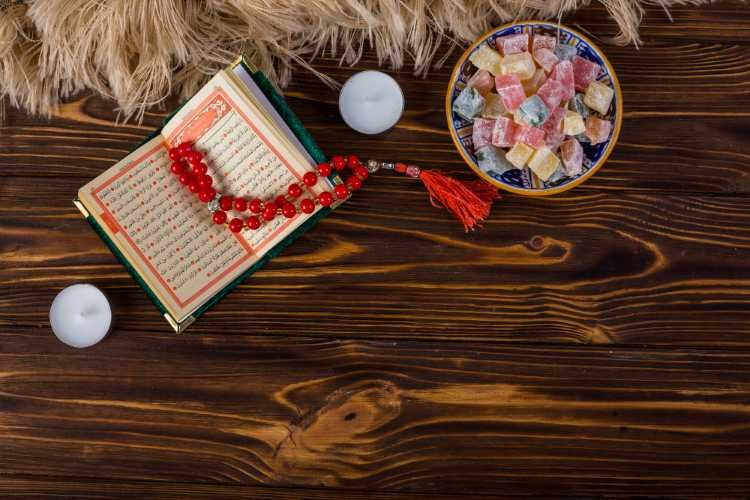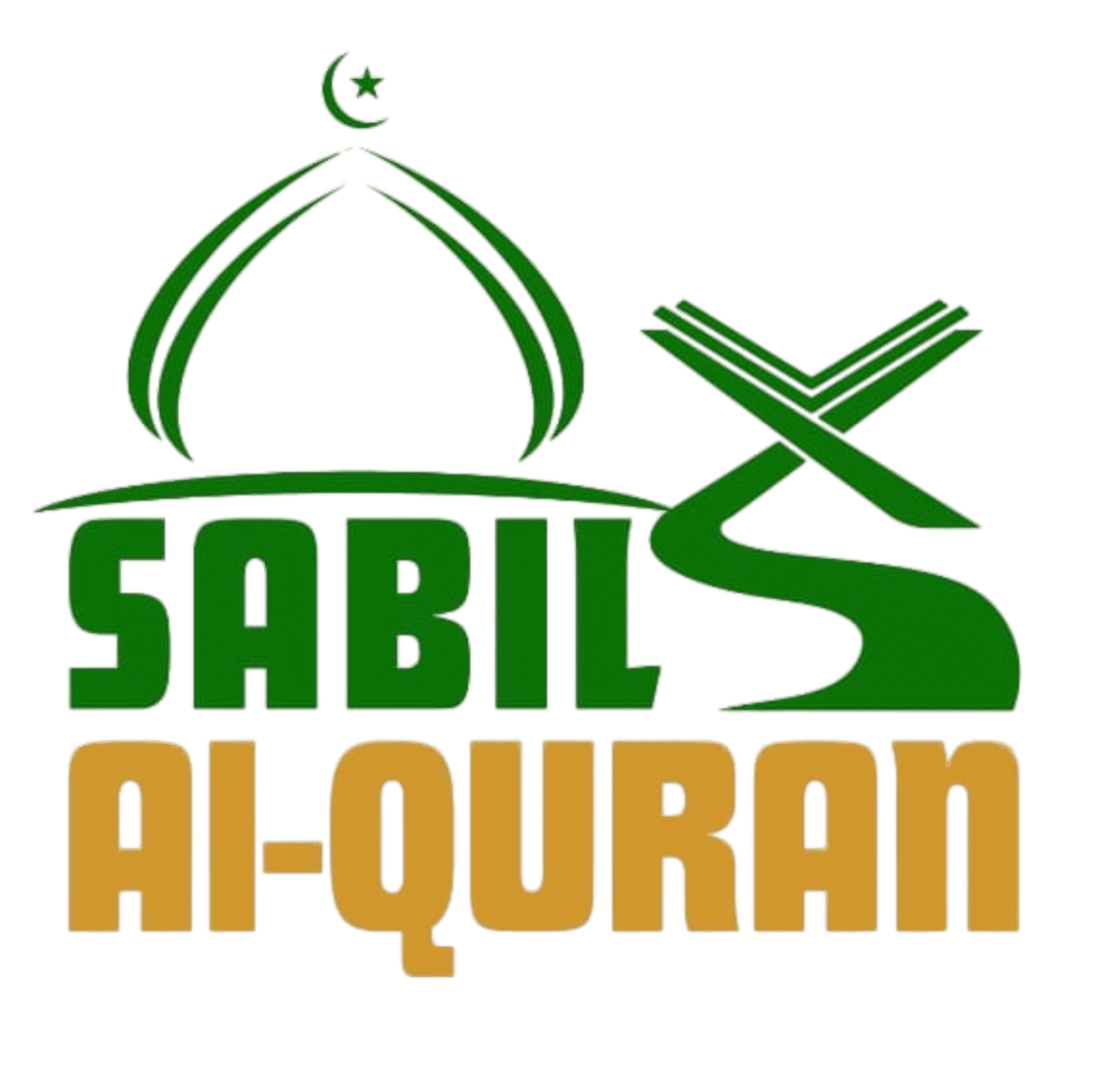Sabil Al-Quran
Is Eid Mentioned in the Quran?
Eid is a time of celebration, unity, and spirituality for Muslims worldwide. The term itself brings to mind images of congregational prayers, festive meals, charity, and a shared sense of joy.
But a question often arises among curious minds and even practicing Muslims: Is Eid Mentioned in the Quran? And if so, what is the context and significance?
At Sabil Al-Quran, we believe in connecting people to authentic Islamic knowledge by revisiting the foundational sources of the religion: the Qur’an and the Sunnah. In this article, we will explore whether Eid is mentioned in the Quran, the types of Eid in Islam, and how they are viewed in the light of revelation. So let’s dive deep and answer clearly: Is Eid Mentioned in the Quran?
Understanding the Meaning of “Eid”
The word Eid (عيد) is derived from the Arabic root ‘aada (عاد), which means to return or recur. Eid refers to a recurring festival that brings joy to the Muslim community. In Islamic tradition, there are two major Eids:
- Eid al-Fitr: Celebrated at the end of Ramadan.
- Eid al-Adha: Celebrated on the 10th of Dhul-Hijjah, during Hajj.
Both of these festivals are not only cultural traditions; they are deeply embedded in Islamic teachings and are acts of worship when performed correctly.
But the central question remains: Is Eid Mentioned in the Quran?
Is the Word “Eid” Mentioned in the Qur’an?
Yes, the word “Eid” is indeed mentioned in the Qur’an, but only once, and in a very specific context.
In Surah Al-Ma’idah (5:114)1, Prophet Isa (Jesus, peace be upon him) prays to Allah:
{عِيدًا لِّأَوَّلِنَا وَآخِرِنَا وَآيَةً مِّنكَ ۖ وَارْزُقْنَا وَأَنتَ خَيْرُ الرَّازِقِينَ}
“Isa the son of Mary said: O Allah, our Lord! Send down to us a table spread with food from heaven, to be for us a festival (Eid) for the first of us and the last of us, and a sign from You…”
(Surah Al-Ma’idah (5:114)
The Arabic word used in this verse is:
“عِيدًا لِّأَوَّلِنَا وَآخِرِنَا”
(“Eidan li-awwalina wa aakhirina”) — meaning “a festival for the first and the last of us.”
This is the only verse in the Qur’an where the term Eid appears explicitly. So, Is Eid Mentioned in the Quran? Yes, but in a unique historical context.
Context of the Verse: Surah Al-Ma’idah
In the context of Surah Al-Ma’idah, Prophet Isa (peace be upon him) asks Allah to send down a heavenly table of food for his disciples, as a sign of Divine power and mercy. His prayer is to make this event a recurring festival—a day of remembrance and gratitude to Allah.
Sabil Al-Quran Insight:
While this instance of Eid refers to a unique historical event, it shows that the concept of having a special day for celebration and remembrance of divine blessings is rooted in prophetic tradition and divinely approved.
So again, Is Eid Mentioned in the Quran? Absolutely, and with profound significance.

Are Eid al-Fitr and Eid al-Adha Mentioned in the Quran?
While the names of Eid al-Fitr and Eid al-Adha are not explicitly mentioned in the Qur’an, their rulings, spirit, and associated acts of worship are clearly referenced.
1. Eid al-Fitr: Quranic Connection
Eid al-Fitr comes after the completion of Ramadan, and although not named directly, its foundation is laid in the following verse as Allah says in (Surah Al-Baqarah, (2:185)2:
{وَلِتُكْمِلُوا الْعِدَّةَ وَلِتُكَبِّرُوا اللَّهَ عَلَىٰ مَا هَدَاكُمْ وَلَعَلَّكُمْ تَشْكُرُونَ}
“He wants you to complete the prescribed period and to glorify Allah for having guided you, so that you may be thankful.”
(Surah Al-Baqarah, 2:185)
This verse refers to completing the fasting of Ramadan and then glorifying Allah—which is exactly what Muslims do on Eid al-Fitr: attending prayers, saying Takbeer, giving Zakat al-Fitr, and expressing gratitude.
Sabil Al-Quran Reflection:
The Qur’an may not name “Eid al-Fitr” directly, but its spiritual framework is deeply embedded in the teachings of Ramadan and what follows after. Still, you may wonder: Is Eid Mentioned in the Quran? — the answer is yes, in both direct and indirect forms.
2. Eid al-Adha: Quranic Connection
Similarly, Eid al-Adha is not named directly in the Qur’an, but the rituals of sacrifice (Qurbani), Hajj, and the days of Dhul-Hijjah are detailed across several verses.
{فَصَلِّ لِرَبِّكَ وَانْحَرْ}
“So pray to your Lord and sacrifice [to Him alone].”
(Surah Al-Kawthar, 108:2)
And in Surah Al-Hajj, (22:27–28)3 Allah Says:
{وَأَذِّنْ فِي النَّاسِ بِالْحَجِّ يَأْتُوكَ رِجَالًا…..وَيَذْكُرُوا اسْمَ اللَّهِ فِي أَيَّامٍ مَّعْلُومَاتٍ عَلَىٰ مَا رَزَقَهُم مِّن بَهِيمَةِ الْأَنْعَامِ}
“And proclaim to the people the Hajj… Let them witness benefits for themselves and mention the name of Allah on known days over what He has provided them of [sacrificial] animals.”
(Surah Al-Hajj, 22:27–28)
These verses clearly reference the sacrifice, ritual prayer, and praise of Allah during the sacred days—precisely what is done during Eid al-Adha.
Sabil Al-Quran Note:
The Qur’an gives the functional aspects of Eid al-Adha, even if the name itself is not explicitly used. So if someone asks, Is Eid Mentioned in the Quran?, the answer requires a deeper understanding.
Eid in the Hadith: Naming the Celebrations
The details and formal naming of Eid al-Fitr and Eid al-Adha are preserved in the Sunnah of Prophet Muhammad ﷺ.
The Prophet said:
“Allah has given you better than those (festivals): Eid al-Fitr and Eid al-Adha.”
(Sunan Abu Dawood)
This hadith refers to the time when the Prophet ﷺ arrived in Madinah and found people celebrating two Persian festivals. He told them that Islam has given them two days of celebration, ordained by Allah.
Wisdom Behind Eid in Islam
At Sabil Al-Quran, we always emphasize the deeper spiritual meanings of rituals. Eid in Islam is not merely a celebration—it is:
- A reminder of Allah’s mercy and blessings
- A symbol of unity among the Muslim Ummah
- A time for charity, especially through Zakat al-Fitr and Qurbani
- A chance for spiritual renewal after Ramadan or during the sacred Hajj season
Unlike cultural festivals that may be based on superstition or social traditions, Eid in Islam has Divine roots and is tied to worship and gratitude. And yes—Is Eid Mentioned in the Quran?—the foundation is certainly there.
Acts of Worship Associated with Eid
Though not all of these are named in the Qur’an, the spirit and purpose of these acts are derived from Quranic values:
- Eid Prayer (Salat al-Eid)
A communal act of worship with a powerful spiritual impact. - Takbeer
The glorification of Allah before Eid prayer, rooted in:
“…and to glorify Allah for that [to] which He has guided you…” (2:185) - Charity (Zakat al-Fitr and Qurbani)
Directly fulfilling Quranic calls for helping the poor and sharing provisions. - Forgiveness and Unity
Eid is a time to mend broken relationships, echoing the Quranic theme of reconciliation and compassion.
Is Celebrating Eid an Innovation (Bid’ah)?
Some people mistakenly think that Eid celebrations are innovations since their names are not clearly mentioned in the Qur’an. However, this is a misunderstanding.
Sabil Al-Quran Clarification:
Eid al-Fitr and Eid al-Adha are firmly established by the Sunnah, which is a primary source of Islamic law. Rejecting them would be a rejection of the Prophet’s teachings.
And remember, Is Eid Mentioned in the Quran?—Yes, both directly and indirectly.
Lessons We Can Draw from Eid
- Gratitude: For being guided to Islam and completing acts of worship.
- Discipline: Eid is a reward after fasting or Hajj.
- Charity and Sharing: Emphasized more during Eid than any other time.
- Renewal: A chance to start fresh in your spiritual journey.
At Sabil Al-Quran, we encourage families to use Eid as a time to reconnect—not only with loved ones—but with Allah through acts of worship, charity, and joy.
Final Thoughts: Does Eid Have a Place in the Quran?
To summarize:
- The word “Eid” appears once in the Qur’an in Surah Al-Ma’idah (5:114), related to the prayer of Prophet Isa (peace be upon him).
- The festive principles and ritual acts associated with Eid al-Fitr and Eid al-Adha are clearly outlined in various Quranic verses.
- The Sunnah names these Eids and provides detailed guidance on how to celebrate them.
So the next time someone asks, Is Eid Mentioned in the Quran?, you can confidently answer: Yes—it is, both in word and in purpose. Never hesitate to reflect on this question: Is Eid Mentioned in the Quran? It helps deepen our understanding.
At Sabil Al-Quran, our mission is to help Muslims understand that every act of celebration in Islam—when done in accordance with the Quran and Sunnah—becomes a means of nearness to Allah.
May your Eids always be filled with peace, knowledge, and gratitude.
Eid Mubarak from all of us at Sabil Al-Quran!


